Blog

Graduate Assistantships in Athletic Training Education
Graduate assistantships (GA’s) are an awesome opportunity to gain experience and receive funding in higher education. Unfortunately, athletic training graduate assistantships at the professional level (master’s degrees, such as our MSAT) are not particularly common. However, graduate assistantships are much more common at the post-graduate level, such as our Doctor of
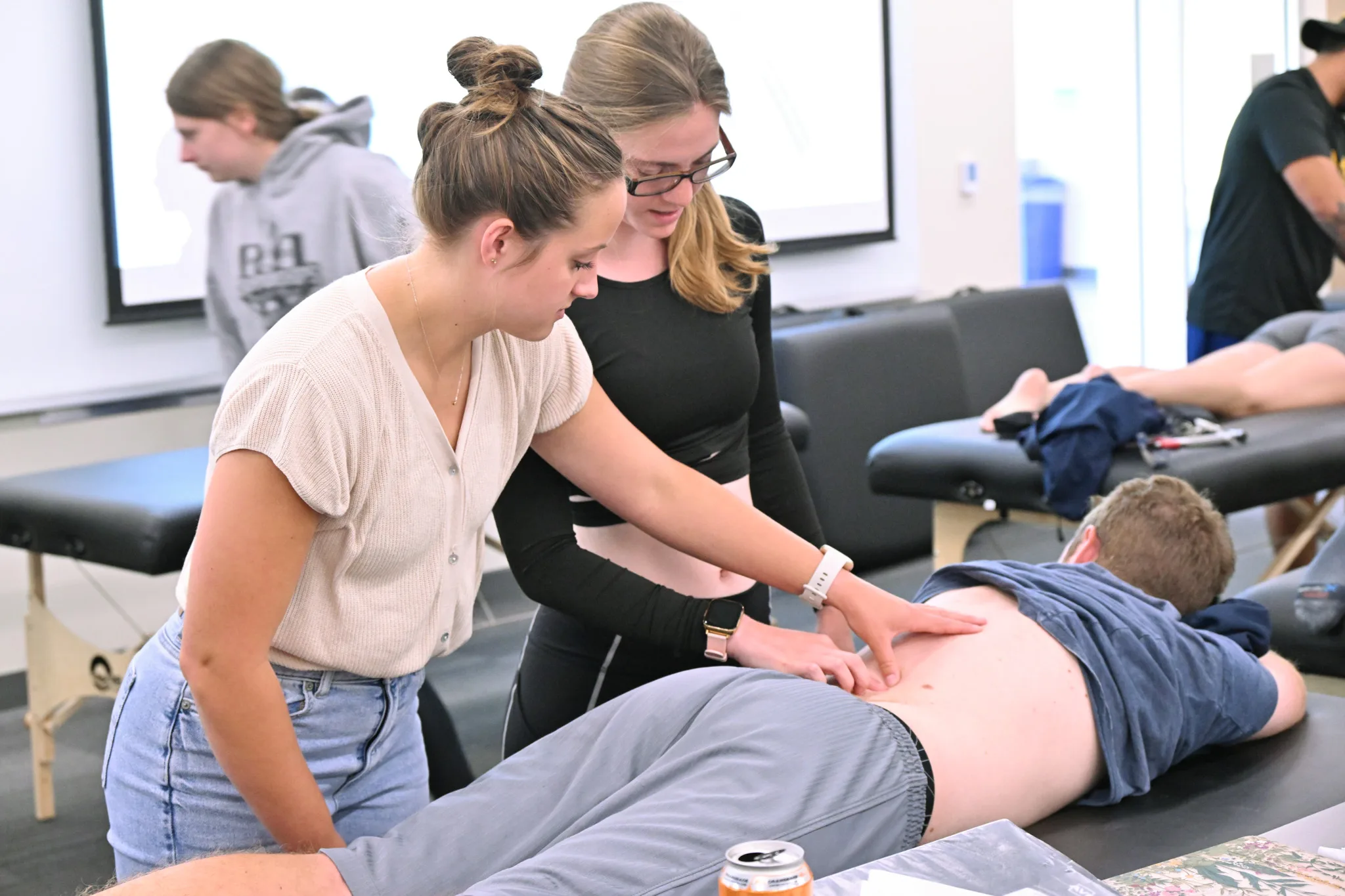
Advanced Techniques in Athletic Training: Manual Therapy and Hands-On Approaches
Advanced Techniques in Athletic Training: Manual Therapy and Hands-On Approaches Unless you are an athletic trainer or physical therapist, you may have never heard of manual therapy. And even within the profession, some practitioners know many manual therapy techniques and use them often, while others may know few techniques and do
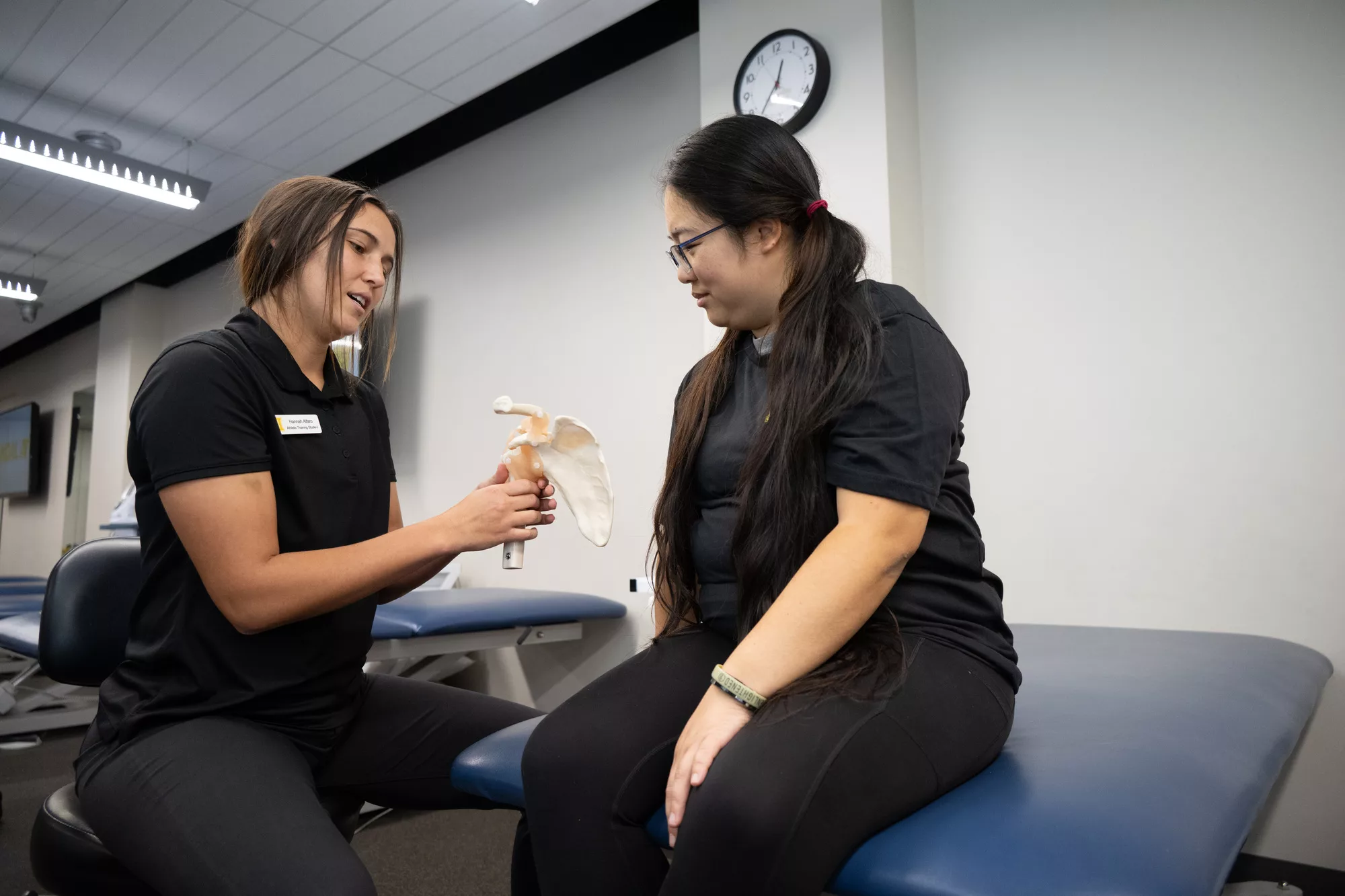
Breaking Barriers: Women in Athletic Training
The Rise of Female Athletic Trainers Athletic Training began as an all-male profession, with no female members in the National Athletic Training Association (NATA) until more than twenty years after its inception in 1950. Fast forward to today, and there are more women in the athletic training profession than men. What

Enhancing Athletic Performance: The Science Behind Sport Nutrition
Why is Sports Nutrition Important? Introduction Sports nutrition is a vital component of an athlete’s performance and overall well-being. To learn more, we sat down with Dr. Ann Brown, Performance Nutrition Specialist and Director of the Human Performance Laboratory here at the University of Idaho. In this blog post, we’ll explore

Unlocking opportunities: Financing your Athletic Training Education
Unlocking Opportunities: How to Finance Your Athletic Training Education A degree in athletic training is a transformative experience, opening doors into a rewarding career with ample job opportunities in a variety of placements. However, the financial aspect of graduate studies can be daunting. In this blog, we will help you navigate

Learn About These Unique Employment Opportunties for Athletic Trainers
Alternative Job Settings for Athletic Trainers Introduction At the University of Idaho, we have had the privilege of witnessing tremendous growth and diversification in the field of athletic training over the last decade or so. Athletic trainers, with their comprehensive knowledge of musculoskeletal injuries, therapeutic techniques, and preventive care, are no
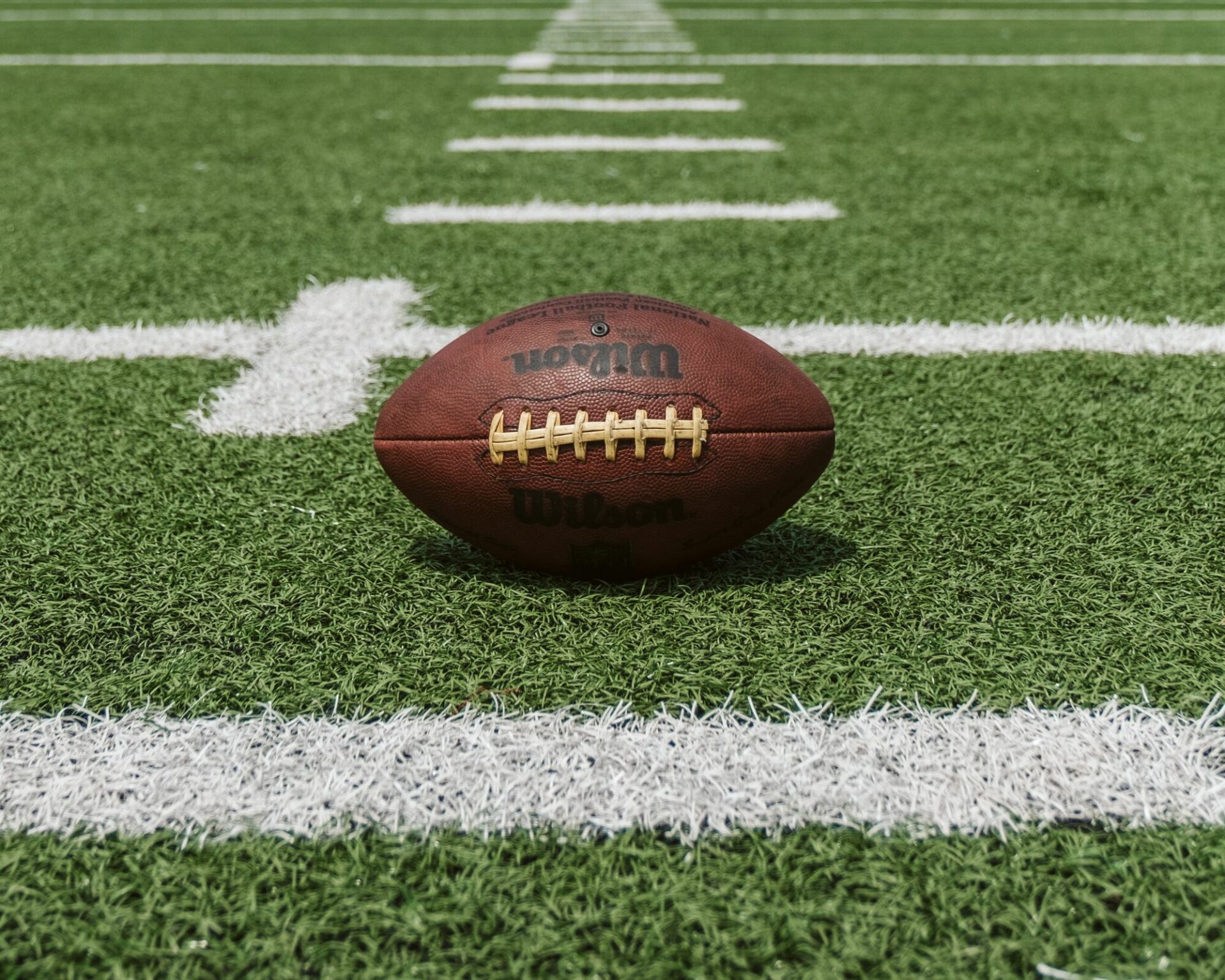
What is it like to be an Athletic Trainer in the NFL?
What It’s Like to Be an Athletic Trainer in the NFL In the United States, American football has the most participants of any other sport at both the high school and college level. The NFL (National Football League) is the leading professional football league in the United States. It comprises 32
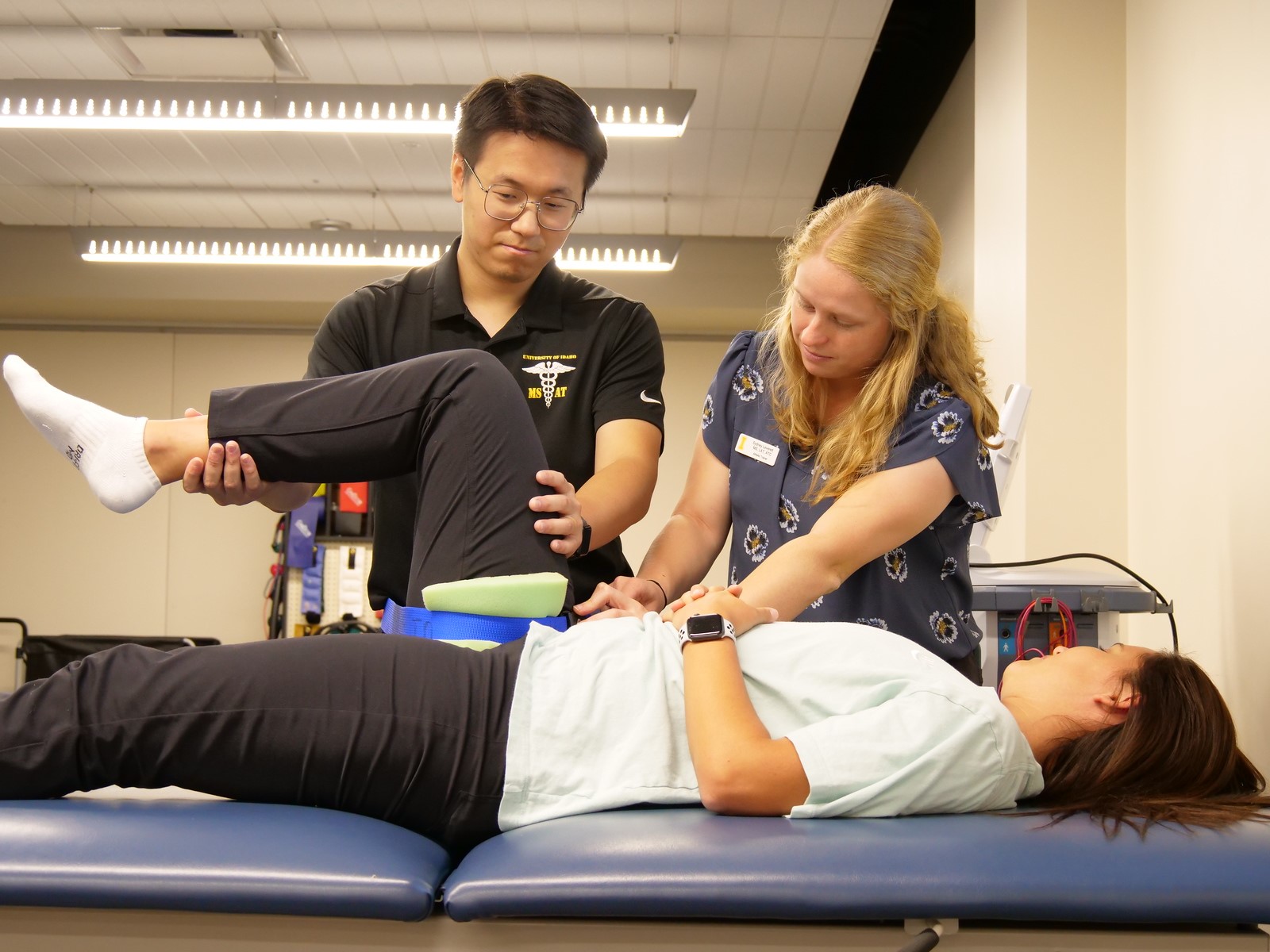
A day in the life of an athletic trainer
What do athletic trainers do? One of the most common questions our faculty and staff hear from people outside the profession is “What do athletic trainers do?” According to the National Athletic Trainers Association (NATA), “Athletic trainers (ATs) are highly qualified, multi-skilled health care professionals who render service or treatment, under

Check out this insightful testimonial from a recent athletic training graduate
Hear From Our Recent Athletic Training Graduate I recently had the pleasure of sitting down with Stephen Panteleakos, who graduated earlier this year from our University of Idaho MSAT program. As an athletic training student, Stephen was always a delight to be around. Our faculty and staff were excited when he

6 Steps to an Amazing Letter of Recommendation
Letters of Recommendation: A Step-by-Step Guide for Applicants If you are applying to athletic training programs, you’re likely going to need letters of recommendation. Our program here at the University of Idaho requires three. We talk to many students who have questions about this. What does LOR stand for? Who should

Check out these 5 Important Questions in an Athletic Training Interview
Prepare for Your Athletic Training Interview with These 5 Key Questions Have you recently completed your degree, and are ready to start your athletic trainer career? Finishing your degree and earning certification is a big step towards landing your dream job, but the next step is nailing your interview. While interviews

Skills and Knowledge Checklist for Becoming an Athletic Trainer
Skills and Knowledge Checklist for Aspiring Athletic Trainers Athletic training is a growing field found at the intersection of active lifestyles and healthcare. Athletic trainers support their patients in a variety of ways, such as emergency care, diagnosis, and rehabilitation. They are also found in a variety of settings, from traditional

Social Media: Boon or Bane for Athletic Trainers?
How can athletic trainers utilize social media? Like it or not, social media usage is on the rise. We see it on our campus, in our clinic, and even in our classrooms. While social media is often viewed as a distraction and hinderance (especially in our classrooms!), there are many social

Know These 6 Effective Steps to Proper Communication in Athletic Training
Why is communication so important for athletic trainers? Effective communication skills are a must for athletic-training graduates, and something we focus heavily on at the University of Idaho. While things like injury treatment and prevention are more visible athletic trainer duties, empathetic communication is important also. Unclear or ineffective communication can

Women in Athletic Training: An in-depth look
The Role and Journey of Women in Athletic Training Since the first woman joined the National Athletic Trainers’ Association (NATA) in the early 1970s, the field has seen significant growth. Here at the University of Idaho, we’ve mentored many women into their development as athletic trainers and have answered many questions
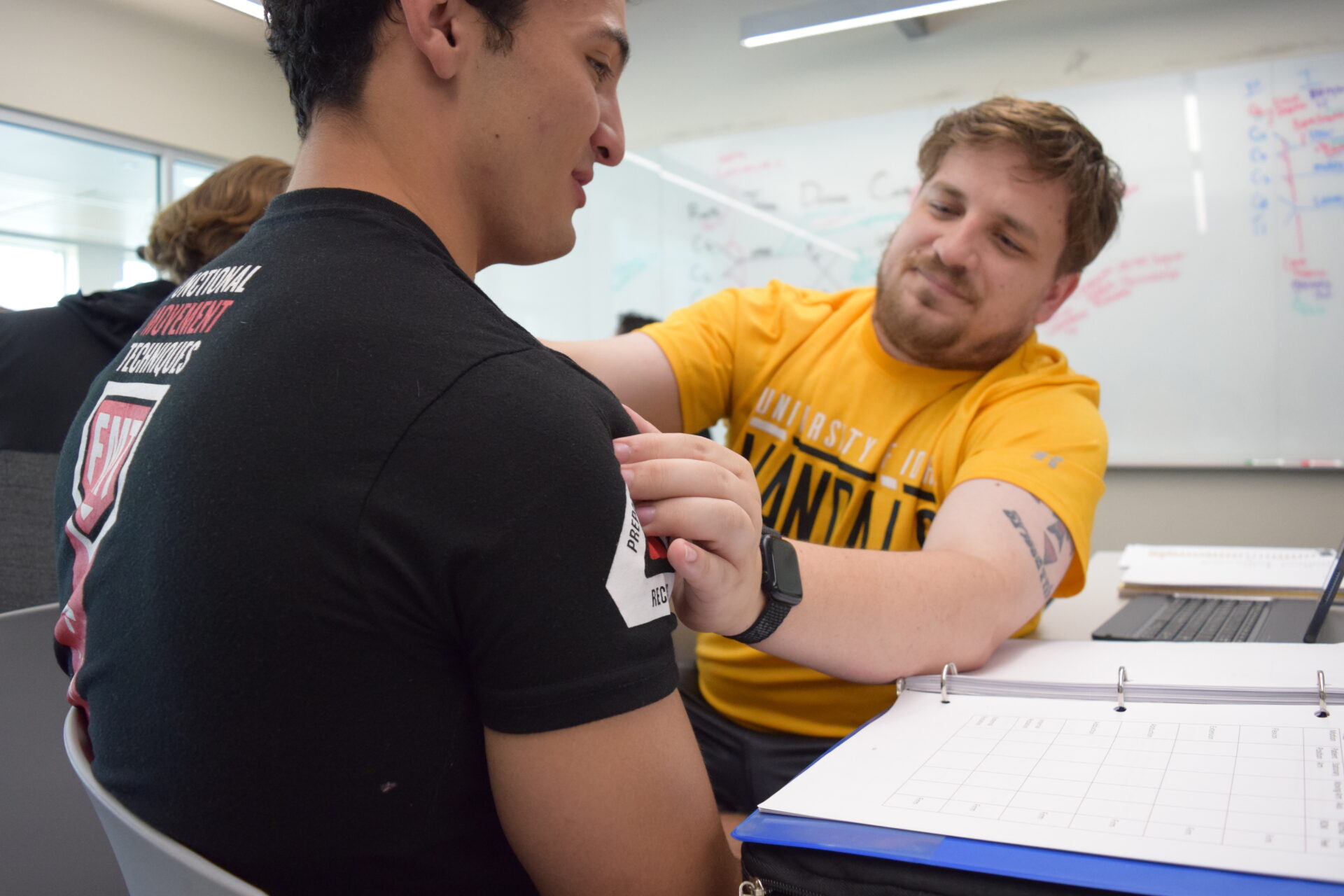
Thinking About an Athletic Training Profession? Here are Some Facts About Athletic Trainers You Should Know
What is an athletic trainer? Unless you are an athlete or medical professional, you may be one of the many who do not necessarily know what an athletic trainer is, or what they do. Is an athletic trainer the same as a personal trainer? What sort of education do athletic trainers
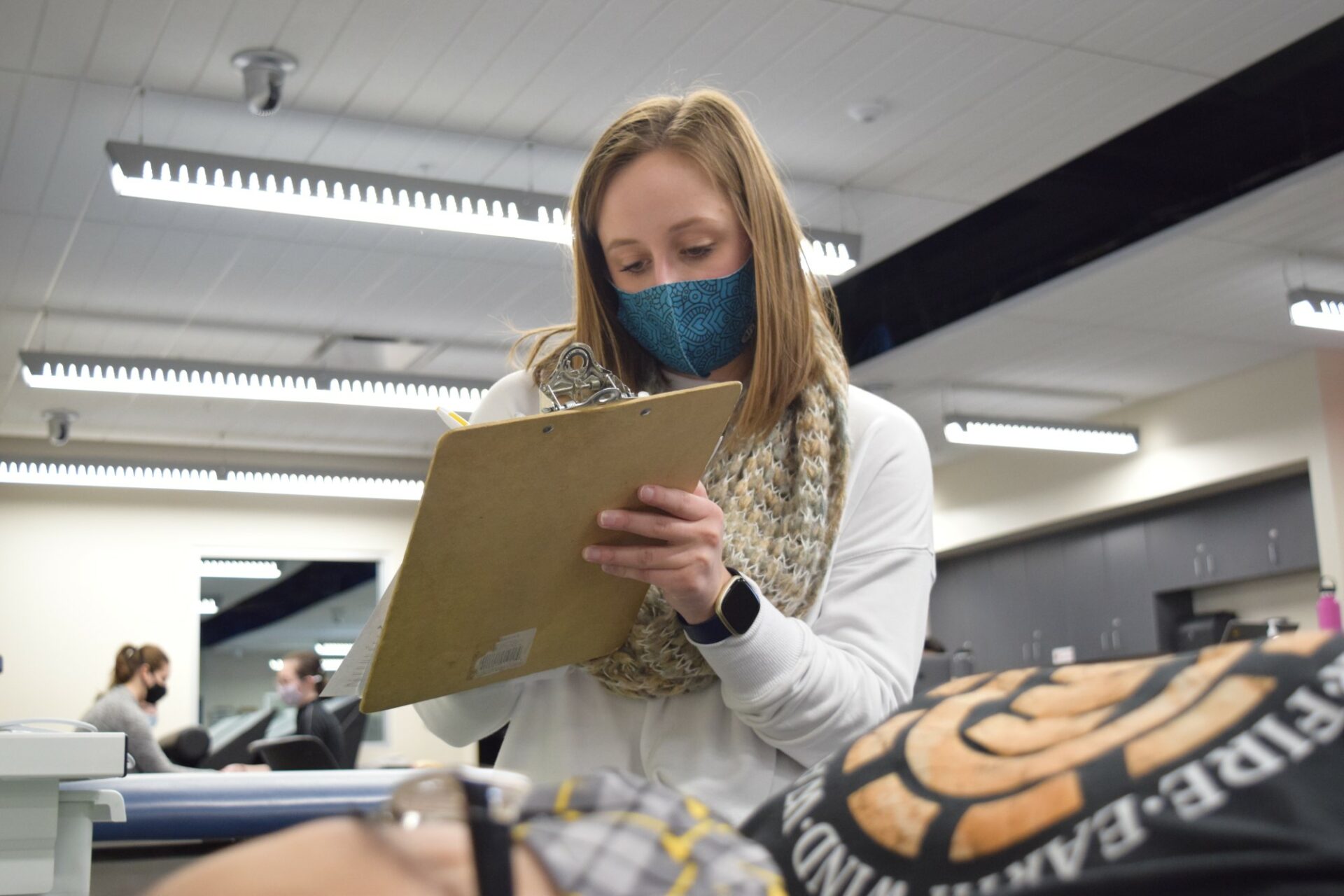
How Athletic Trainers Deal with Catastrophic Sports Injuries
How Athletic Trainers Manage Catastrophic Sports Injuries One of the benefits of having an athletic trainer on-site for athletic competitions and practices is that they are available to diagnose and treat athletic injuries and illnesses immediately. Often injuries are relatively small, short-lived, and patients can quickly return to their activity. But
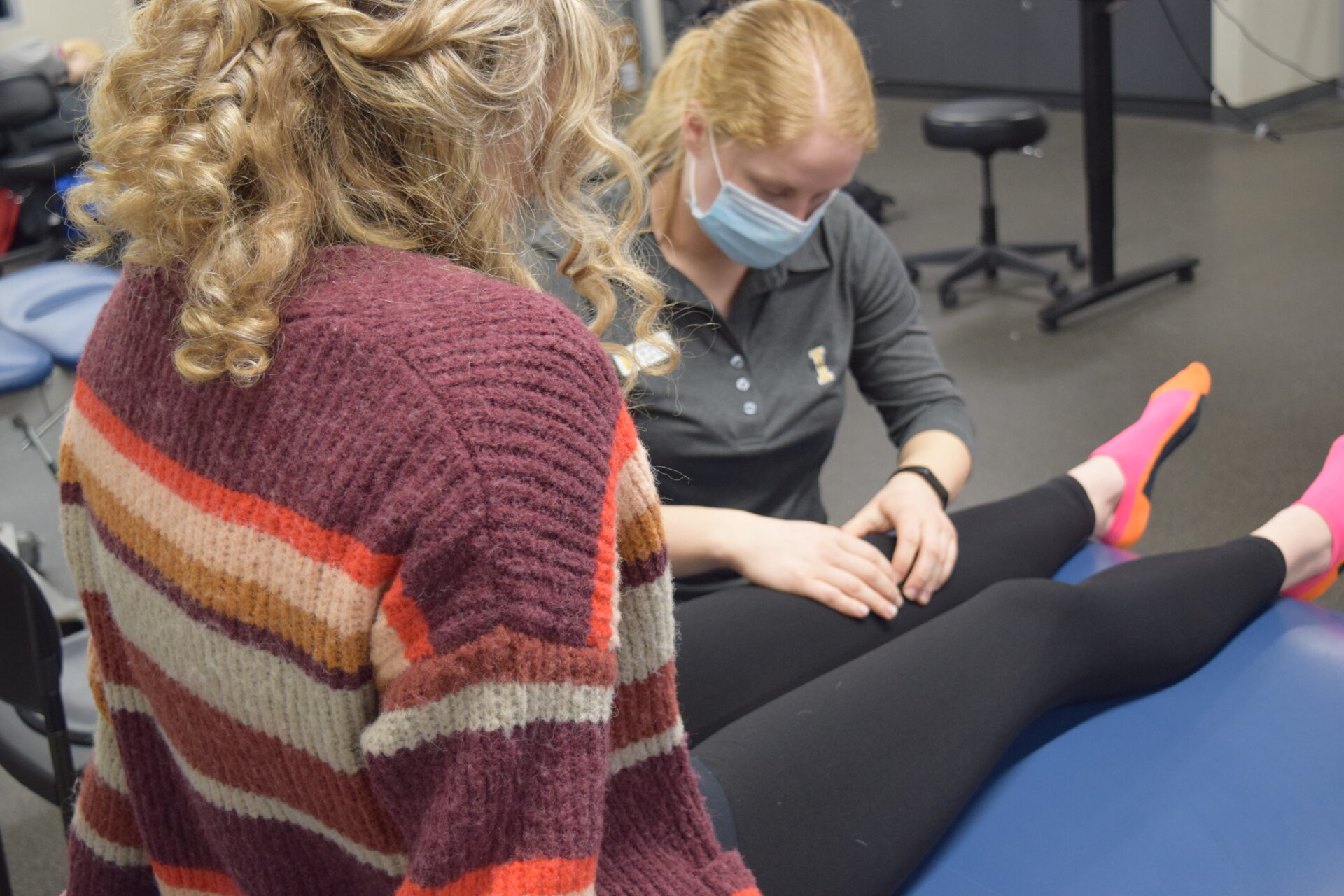
Why you should opt for the University of Idaho’s DAT program
Why Choose the University of Idaho’s DAT Program? If you are an athletic trainer, you may have heard of athletic training doctorate programs, and you may have heard that they can boost your career. But what exactly are DAT programs and what do you learn through them? At the University of

Bursting some common myths about athletic training
Busting the Top 3 Myths About Athletic Trainers Athletic training is potentially one of the most misunderstood allied healthcare professions. Some may even be surprised to learn that athletic trainers are healthcare professionals. Who exactly are athletic trainers, and what do they do? Read on to burst three common myths in

The Role of Athletic Trainers in Supporting the Mental Health of Athletes
How does mental health affect athletic performance? More and more, we’ve seen mental health in sports becoming a topic of conversation. Whether it is Simone Biles and her decision to withdraw from the Olympics, or Michael Phelps talking about his struggles with depression, our society is slowly realizing that depression and

Are you an Athletic Training Major in the Making?
Are You Preparing to Become an Athletic Training Major? Found at the intersection of active lifestyles and healthcare, athletic training is a growing career field with ample job opportunities. While many students find this prospect intriguing, they struggle with questions like “What is an athletic trainer’s job description?” and “What degree
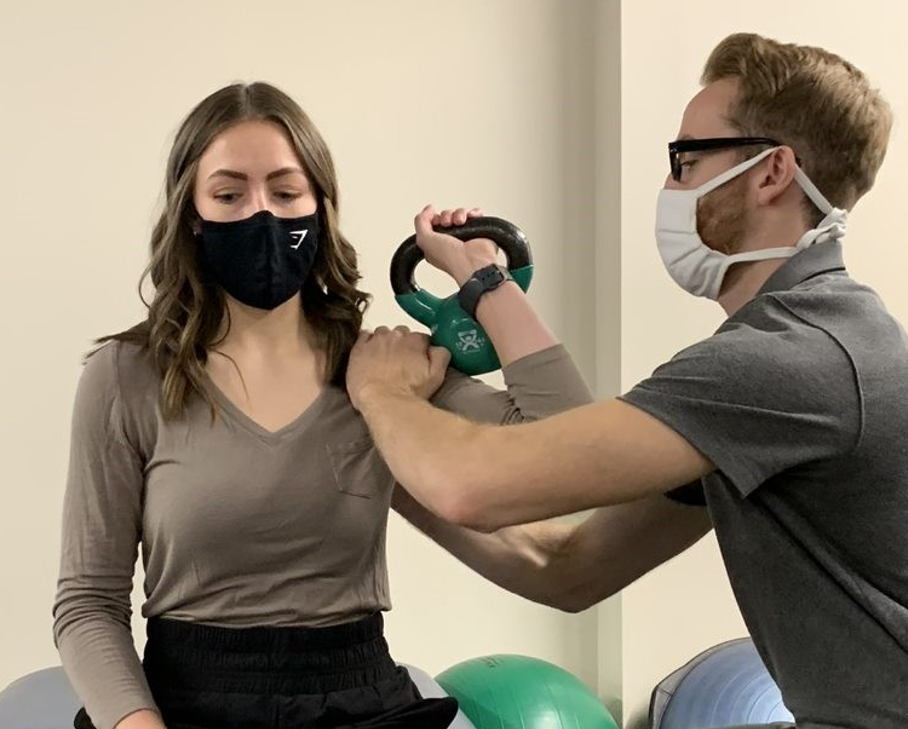
The Importance of Industrial Athletic Trainers
What is the role of an athletic trainer in an industrial site? Have you heard of an industrial athletic trainer? You may know that athletic trainers have been steadily pushing outside of athletics, as other industries have discovered the benefits of having a highly trained healthcare provider on-staff. Athletic trainer job

How to Crack the BOC Athletic Training Exam
What is an entry-level athletic training degree? To become a board-certified athletic trainer, a candidate must first complete an entry-level athletic training education program accredited by the Commission on Accreditation of Athletic Training Education (CAATE). Earning the “ATC” credential is required to practice athletic training in 48 states. What is an

Athletic Training 101
How does an athletic trainer help with injury prevention? Athletic trainers are highly trained healthcare professionals who, as part of a healthcare team, provide services such as primary care, injury and illness prevention, emergent care, examination and clinical diagnosis, therapeutic interventions and rehabilitation of injuries and illnesses. They specialize in the

Popular Career Paths After an Athletic Training Degree
What do you learn in an athletic training program? Athletic training is a growing field, with many graduates finding employment in new and emerging settings. Athletic trainers have many opportunities to find a rewarding and fulfilling placement that fits with their interests and strengths. What do you learn in an athletic

The Doctor in Athletic Training Program Can Transform Your Career
What is the Doctor in Athletic Training program? Athletic training education history The profession of athletic training has evolved over the last 25 years. Leading up to and during this period, athletic trainers were typically found in “traditional” settings such as secondary schools, colleges, and professional sports teams. Bachelor’s degrees were
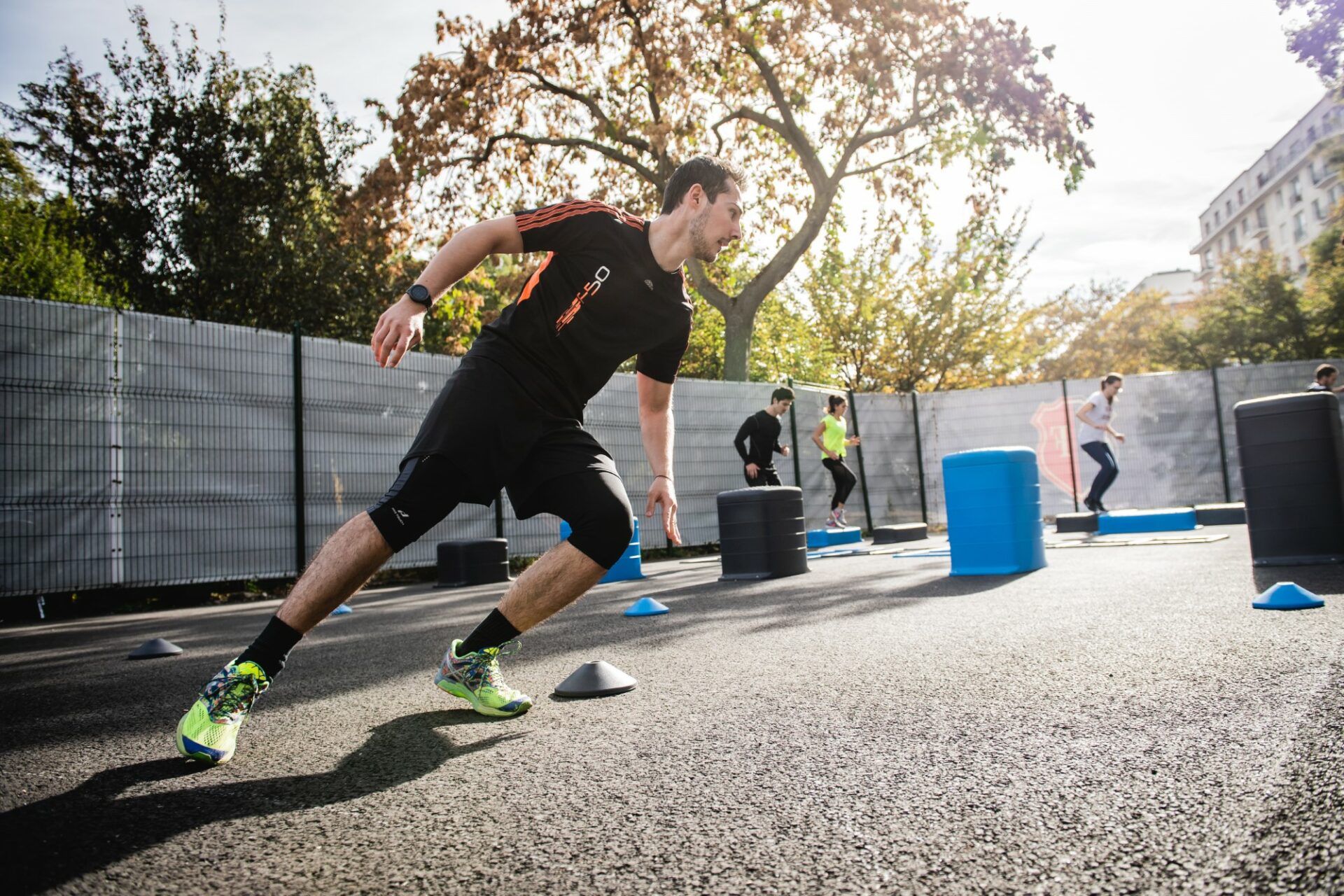
Top Five Unbeatable Athletic Training Qualities You Need to Know
Unbeatable Skills Every Athletic Trainer Must Have At the intersection of emergency care, evaluation/diagnosis, and rehabilitation, athletic training creates opportunities not often seen in other allied health professions. For example, athletic trainers can work closely with patients over long periods of time, developing relationships while providing personalized care. There is also

How is technology disrupting athletic training?
Ways Technology Has Changed the Game for Athletic Trainers The medical field is one that has seen significant impact from changes in technology over the last few years. Athletic trainers, whether they work with a professional sports team, in a high school, or in a clinic, have seen the changes in

Athletic training trends you should definitely check out
Here are the new trends in athletic training we are keeping an eye on. Athletic training is a dynamic field; one that is always evolving to lead and sometimes follow the latest innovations and technologies. As educators in the field, we help create, identify, and establish these trends by the research

Know what it takes to become an athletic trainer for a sports team
What is an athletic trainer’s job description? If you ask most people “What do athletic trainers do?” the first thing that pops into their minds is working for a professional sports team. Although athletic trainers have been moving into other arenas of healthcare, sport teams are still a very common employment

Why is a Master’s Degree in Athletic Training Essential?
The Importance of Advanced Education in Athletic Training If you’re considering a career in Athletic Training, congratulations! You are launching into a fast-growing career field with a great deal of opportunities. However, you may find yourself facing a lot of questions. Do you need a master’s degree in Athletic Training, or
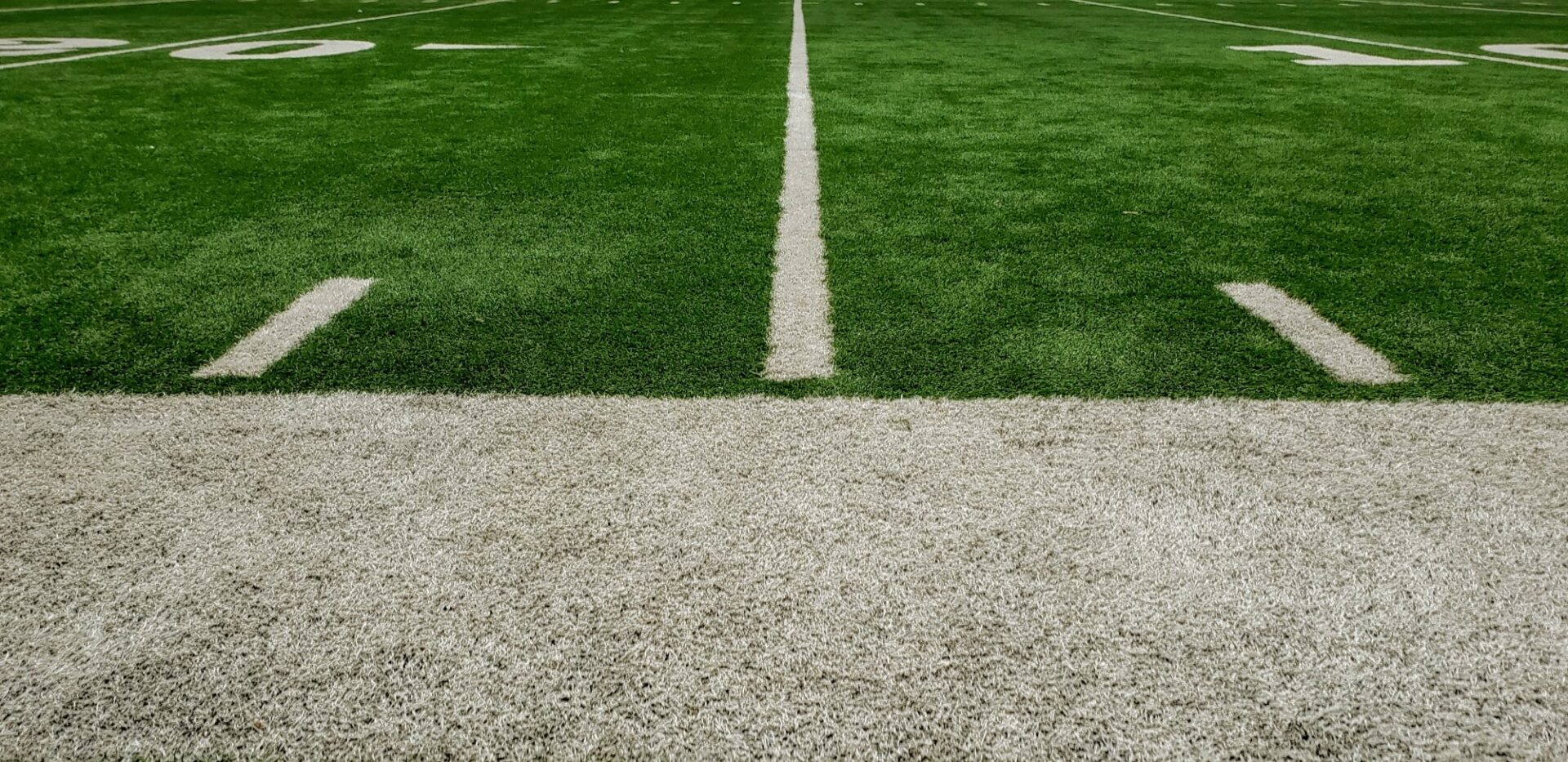
Things to Remember While Applying for NFL Athletic Training Internships
What do NFL Athletic Trainers do? As far as athletic training positions go, there are few as highly sought after as those in the NFL. Why? The glitz and glamour of professional football plays a role, but they also offer an opportunity to work in some of the best facilities and

Athletic Training or Exercise Science? Here’s what to Look for
Choosing Between Athletic Training and Exercise Science We see a lot of students who struggle with the differences of exercise science vs athletic training, and with good reason! These are related and intersecting fields. Both support physically active populations, but in very different ways. For example, graduates from an exercise science

What to do after Masters in Athletic Training
Career Paths for Athletic Training Graduates Kyle North ATC, LAT As a recent graduate of a master’s in athletic training program, you may be wondering “what can you do with an athletic training degree?” As healthcare providers, athletic trainers are in a unique situation regarding their flexibility and where they can

Step by Step Guide to be an athletic trainer: Answers to the most important questions
Step by Step Guide to be an athletic trainer Athletic trainers (ATs) are healthcare professionals who collaborate with physicians to provide preventative services, emergency medical care, clinical diagnosis, therapeutic intervention and rehabilitation of injuries and medical conditions in the physically active population. Those who want to become an athletic trainer (AT)
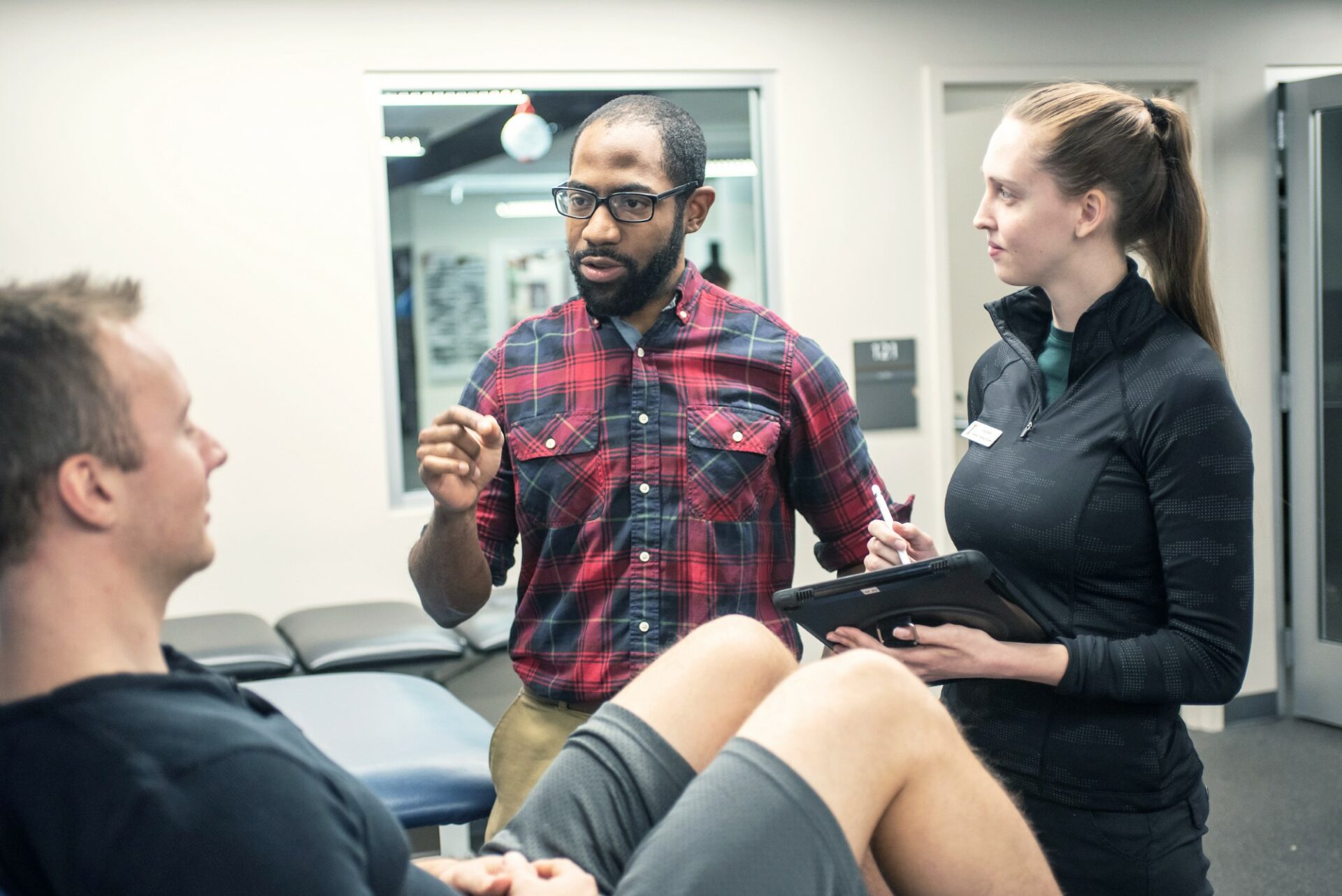
Importance of Having Athletic Trainers in High Schools
The Importance of Athletic Trainers in High Schools Dr. Matthew Smitley DAT, AT, ATC, SFMA It’s an unfortunate scene that plays out at High School sports fields, courts, and facilities. An athlete sustains an injury and a health care professional runs out to the field to help them… sometimes. A recent
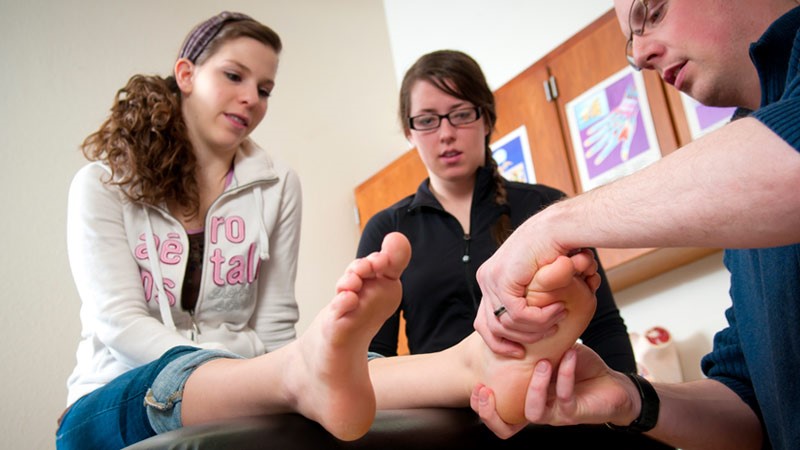
5 Steps to Follow When Planning to Apply to an AT Program
5 Essential Steps to Follow When Applying to an AT Program If you are interested in becoming a certified athletic trainer (AT), you have chosen a rewarding and growing healthcare career! With a little bit of planning and the right information, you will be well on your way to earning your
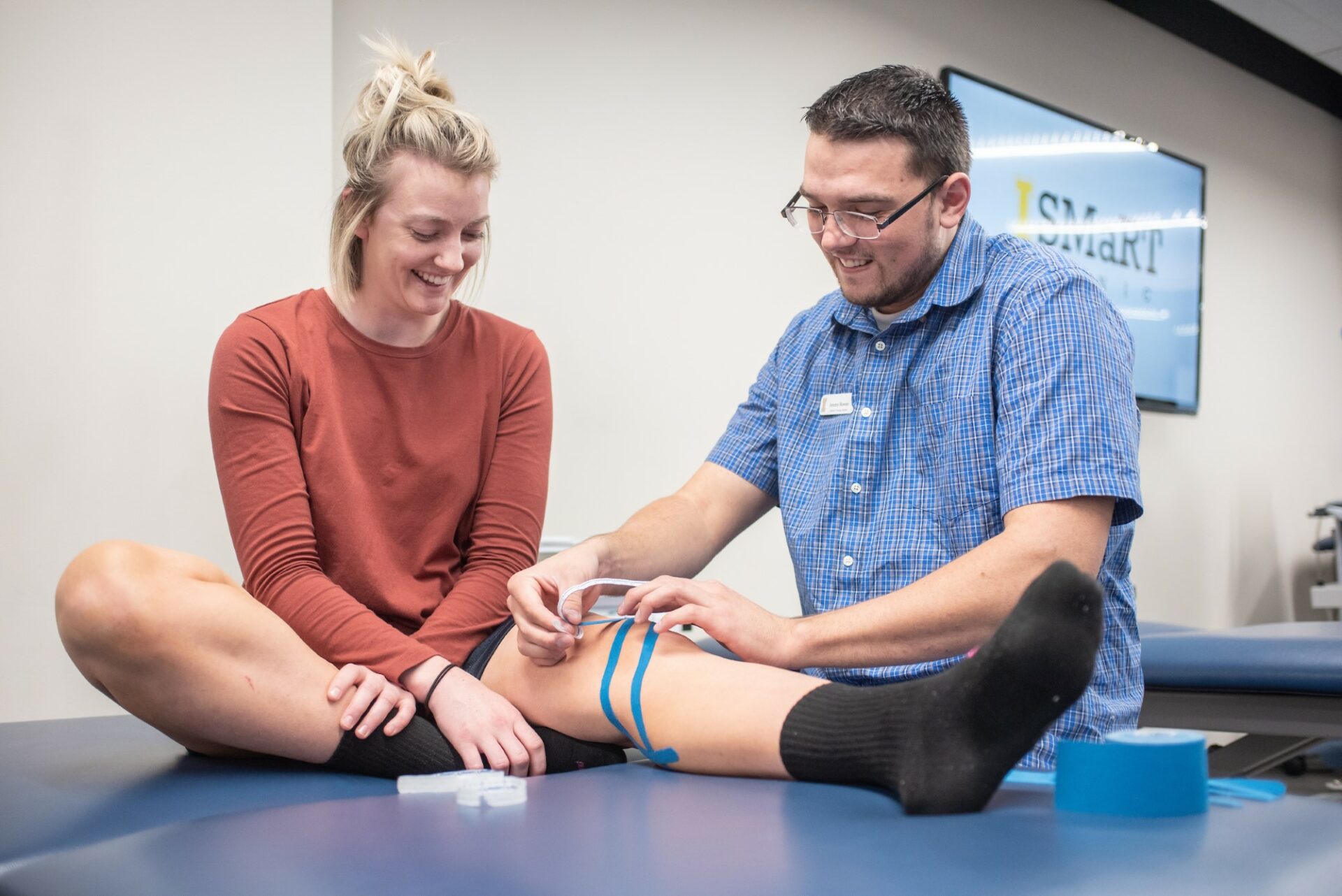
Relationship between Athletic Trainers and Physical Therapist
Exploring the Relationship Between Athletic Trainers and Physical Therapists Athletic Training and Physical Therapy are strongly related professions due to similar and complementary education, job settings, and skills sets. Many athletic trainers (ATs) and physical therapists (PTs) work together in different health care settings and will often collaborate in the care

Why is Athletic Training the best career option?
Why Is Athletic Training the Best Career Option? 1. General Overview: Is athletic training a good career? For many, becoming an athletic trainer (AT) is not just a dream profession/career, but it is a calling to help others. The job brings about a sense of satisfaction for those who are certified

Career Opportunities with a Degree in Athletic Training Program
Career Opportunities with a Degree from an Athletic Training Program Athletic training is a good career and well known in athletic settings such as high school, college, and professional sports. As healthcare professionals, athletic trainers are trained in diagnosis, treatment and rehabilitation, and injury prevention. These skills go beyond the sporting
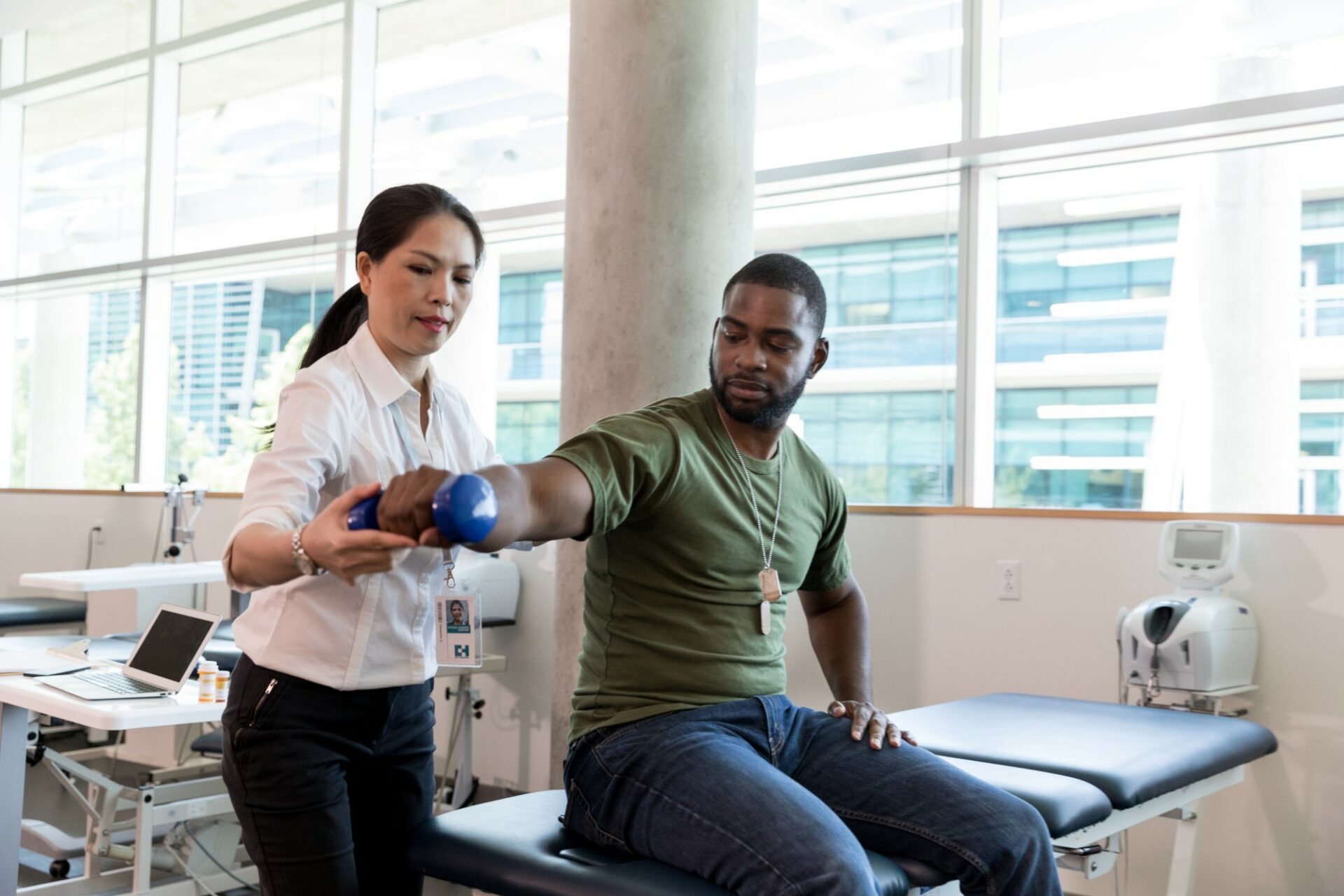
Psychological “R’s” of Easy Injury Rehabilitation
Understanding The Causes of Injury in Physical Rehabilitation Most people will experience at least one significant injury in their lifetime. Fortunately, we understand more about the human body and physical rehabilitation than ever before. As we understand more about injury, we realize that there is often more to the injury than
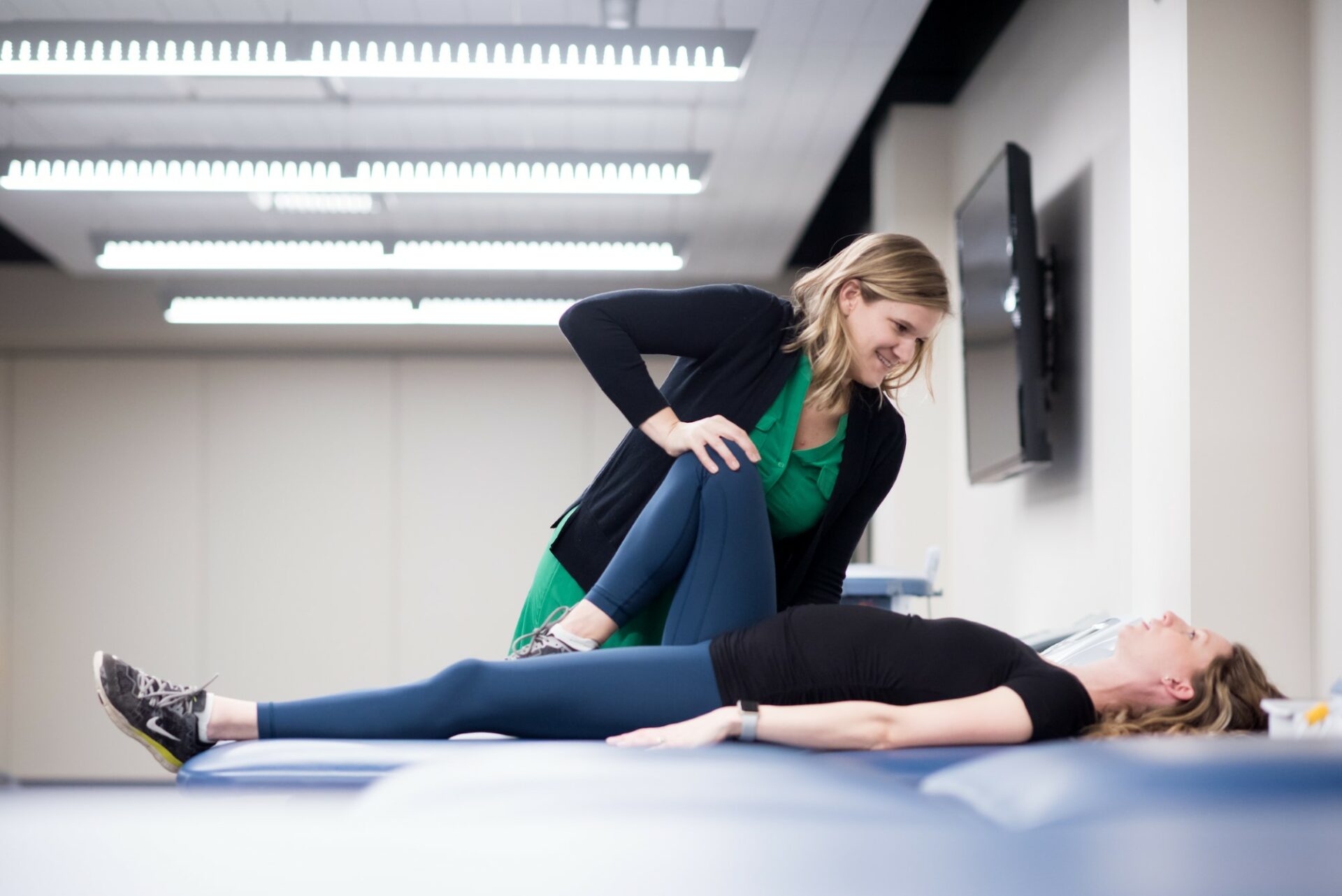
Importance & Benefits of Athletic Trainers in Sports Training
The Vital Role of Athletic Trainers in Sports Training It’s an unfortunate scene that plays out in almost every athletic contest you see on TV. A play comes to an end and within moments, there’s a team of people rushing out to provide care to an injured athlete. There’s a time
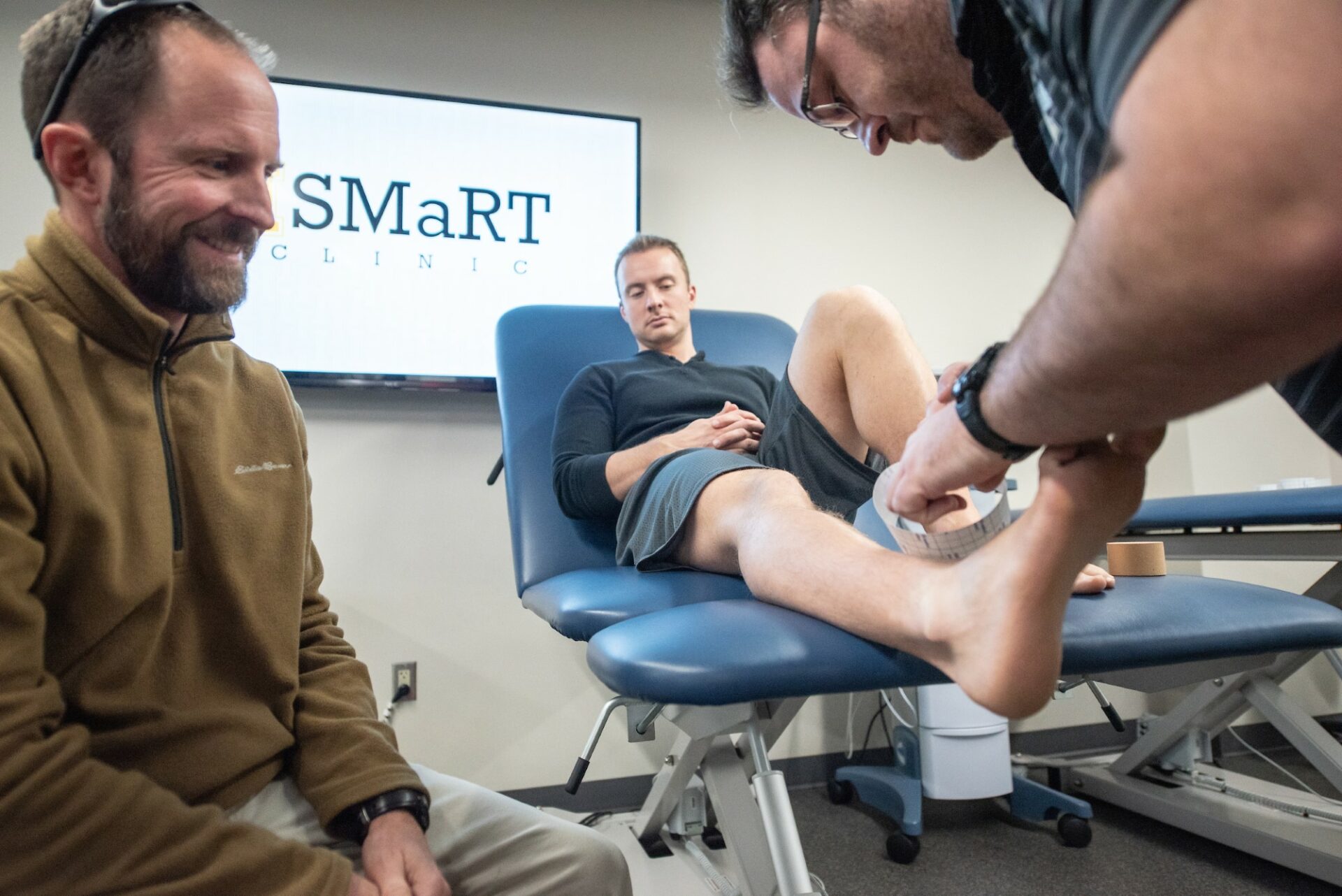
Athletic training Hacks for sports Injury prevention
Athletic Training Tips for Effective Sports Injury Prevention For those of us in active populations, we all want to feel great and perform our best. However, it is very common for athletes and active individuals to experience pain and injury. While these create unfortunate experiences, there are a number of ways

Rehabilitation Therapy in Sports: Things to Learn
Sports Rehabilitation Therapy: Key Principles for Recovery Dr. Matthew Smitley, DAT, LAT, ATC Rehabilitating from sports injuries can be quite the complex process for any patient or clinician. Regardless of the injury, location, or its severity, a timely and appropriate progression is paramount to the success of the rehabilitation plan. Despite

Graduate Assistantships in Athletic Training Education
Graduate assistantships (GA’s) are an awesome opportunity to gain experience and receive funding in higher education. Unfortunately, athletic training graduate assistantships at the professional level (master’s degrees, such as our MSAT) are not particularly common. However, graduate assistantships are much more common at the post-graduate level, such as our Doctor of

Advanced Techniques in Athletic Training: Manual Therapy and Hands-On Approaches
Advanced Techniques in Athletic Training: Manual Therapy and Hands-On Approaches Unless you are an athletic trainer or physical therapist, you may have never heard of manual therapy. And even within the profession, some practitioners know many manual therapy techniques and use them often, while others may know few techniques and do

Breaking Barriers: Women in Athletic Training
The Rise of Female Athletic Trainers Athletic Training began as an all-male profession, with no female members in the National Athletic Training Association (NATA) until more than twenty years after its inception in 1950. Fast forward to today, and there are more women in the athletic training profession than men. What

Enhancing Athletic Performance: The Science Behind Sport Nutrition
Why is Sports Nutrition Important? Introduction Sports nutrition is a vital component of an athlete’s performance and overall well-being. To learn more, we sat down with Dr. Ann Brown, Performance Nutrition Specialist and Director of the Human Performance Laboratory here at the University of Idaho. In this blog post, we’ll explore

Unlocking opportunities: Financing your Athletic Training Education
Unlocking Opportunities: How to Finance Your Athletic Training Education A degree in athletic training is a transformative experience, opening doors into a rewarding career with ample job opportunities in a variety of placements. However, the financial aspect of graduate studies can be daunting. In this blog, we will help you navigate

Learn About These Unique Employment Opportunties for Athletic Trainers
Alternative Job Settings for Athletic Trainers Introduction At the University of Idaho, we have had the privilege of witnessing tremendous growth and diversification in the field of athletic training over the last decade or so. Athletic trainers, with their comprehensive knowledge of musculoskeletal injuries, therapeutic techniques, and preventive care, are no

What is it like to be an Athletic Trainer in the NFL?
What It’s Like to Be an Athletic Trainer in the NFL In the United States, American football has the most participants of any other sport at both the high school and college level. The NFL (National Football League) is the leading professional football league in the United States. It comprises 32

A day in the life of an athletic trainer
What do athletic trainers do? One of the most common questions our faculty and staff hear from people outside the profession is “What do athletic trainers do?” According to the National Athletic Trainers Association (NATA), “Athletic trainers (ATs) are highly qualified, multi-skilled health care professionals who render service or treatment, under

Check out this insightful testimonial from a recent athletic training graduate
Hear From Our Recent Athletic Training Graduate I recently had the pleasure of sitting down with Stephen Panteleakos, who graduated earlier this year from our University of Idaho MSAT program. As an athletic training student, Stephen was always a delight to be around. Our faculty and staff were excited when he

6 Steps to an Amazing Letter of Recommendation
Letters of Recommendation: A Step-by-Step Guide for Applicants If you are applying to athletic training programs, you’re likely going to need letters of recommendation. Our program here at the University of Idaho requires three. We talk to many students who have questions about this. What does LOR stand for? Who should

Check out these 5 Important Questions in an Athletic Training Interview
Prepare for Your Athletic Training Interview with These 5 Key Questions Have you recently completed your degree, and are ready to start your athletic trainer career? Finishing your degree and earning certification is a big step towards landing your dream job, but the next step is nailing your interview. While interviews

Skills and Knowledge Checklist for Becoming an Athletic Trainer
Skills and Knowledge Checklist for Aspiring Athletic Trainers Athletic training is a growing field found at the intersection of active lifestyles and healthcare. Athletic trainers support their patients in a variety of ways, such as emergency care, diagnosis, and rehabilitation. They are also found in a variety of settings, from traditional

Social Media: Boon or Bane for Athletic Trainers?
How can athletic trainers utilize social media? Like it or not, social media usage is on the rise. We see it on our campus, in our clinic, and even in our classrooms. While social media is often viewed as a distraction and hinderance (especially in our classrooms!), there are many social

Know These 6 Effective Steps to Proper Communication in Athletic Training
Why is communication so important for athletic trainers? Effective communication skills are a must for athletic-training graduates, and something we focus heavily on at the University of Idaho. While things like injury treatment and prevention are more visible athletic trainer duties, empathetic communication is important also. Unclear or ineffective communication can

Women in Athletic Training: An in-depth look
The Role and Journey of Women in Athletic Training Since the first woman joined the National Athletic Trainers’ Association (NATA) in the early 1970s, the field has seen significant growth. Here at the University of Idaho, we’ve mentored many women into their development as athletic trainers and have answered many questions

Thinking About an Athletic Training Profession? Here are Some Facts About Athletic Trainers You Should Know
What is an athletic trainer? Unless you are an athlete or medical professional, you may be one of the many who do not necessarily know what an athletic trainer is, or what they do. Is an athletic trainer the same as a personal trainer? What sort of education do athletic trainers

How Athletic Trainers Deal with Catastrophic Sports Injuries
How Athletic Trainers Manage Catastrophic Sports Injuries One of the benefits of having an athletic trainer on-site for athletic competitions and practices is that they are available to diagnose and treat athletic injuries and illnesses immediately. Often injuries are relatively small, short-lived, and patients can quickly return to their activity. But

Why you should opt for the University of Idaho’s DAT program
Why Choose the University of Idaho’s DAT Program? If you are an athletic trainer, you may have heard of athletic training doctorate programs, and you may have heard that they can boost your career. But what exactly are DAT programs and what do you learn through them? At the University of

Bursting some common myths about athletic training
Busting the Top 3 Myths About Athletic Trainers Athletic training is potentially one of the most misunderstood allied healthcare professions. Some may even be surprised to learn that athletic trainers are healthcare professionals. Who exactly are athletic trainers, and what do they do? Read on to burst three common myths in

The Role of Athletic Trainers in Supporting the Mental Health of Athletes
How does mental health affect athletic performance? More and more, we’ve seen mental health in sports becoming a topic of conversation. Whether it is Simone Biles and her decision to withdraw from the Olympics, or Michael Phelps talking about his struggles with depression, our society is slowly realizing that depression and

Are you an Athletic Training Major in the Making?
Are You Preparing to Become an Athletic Training Major? Found at the intersection of active lifestyles and healthcare, athletic training is a growing career field with ample job opportunities. While many students find this prospect intriguing, they struggle with questions like “What is an athletic trainer’s job description?” and “What degree

The Importance of Industrial Athletic Trainers
What is the role of an athletic trainer in an industrial site? Have you heard of an industrial athletic trainer? You may know that athletic trainers have been steadily pushing outside of athletics, as other industries have discovered the benefits of having a highly trained healthcare provider on-staff. Athletic trainer job

How to Crack the BOC Athletic Training Exam
What is an entry-level athletic training degree? To become a board-certified athletic trainer, a candidate must first complete an entry-level athletic training education program accredited by the Commission on Accreditation of Athletic Training Education (CAATE). Earning the “ATC” credential is required to practice athletic training in 48 states. What is an

Athletic Training 101
How does an athletic trainer help with injury prevention? Athletic trainers are highly trained healthcare professionals who, as part of a healthcare team, provide services such as primary care, injury and illness prevention, emergent care, examination and clinical diagnosis, therapeutic interventions and rehabilitation of injuries and illnesses. They specialize in the

Popular Career Paths After an Athletic Training Degree
What do you learn in an athletic training program? Athletic training is a growing field, with many graduates finding employment in new and emerging settings. Athletic trainers have many opportunities to find a rewarding and fulfilling placement that fits with their interests and strengths. What do you learn in an athletic